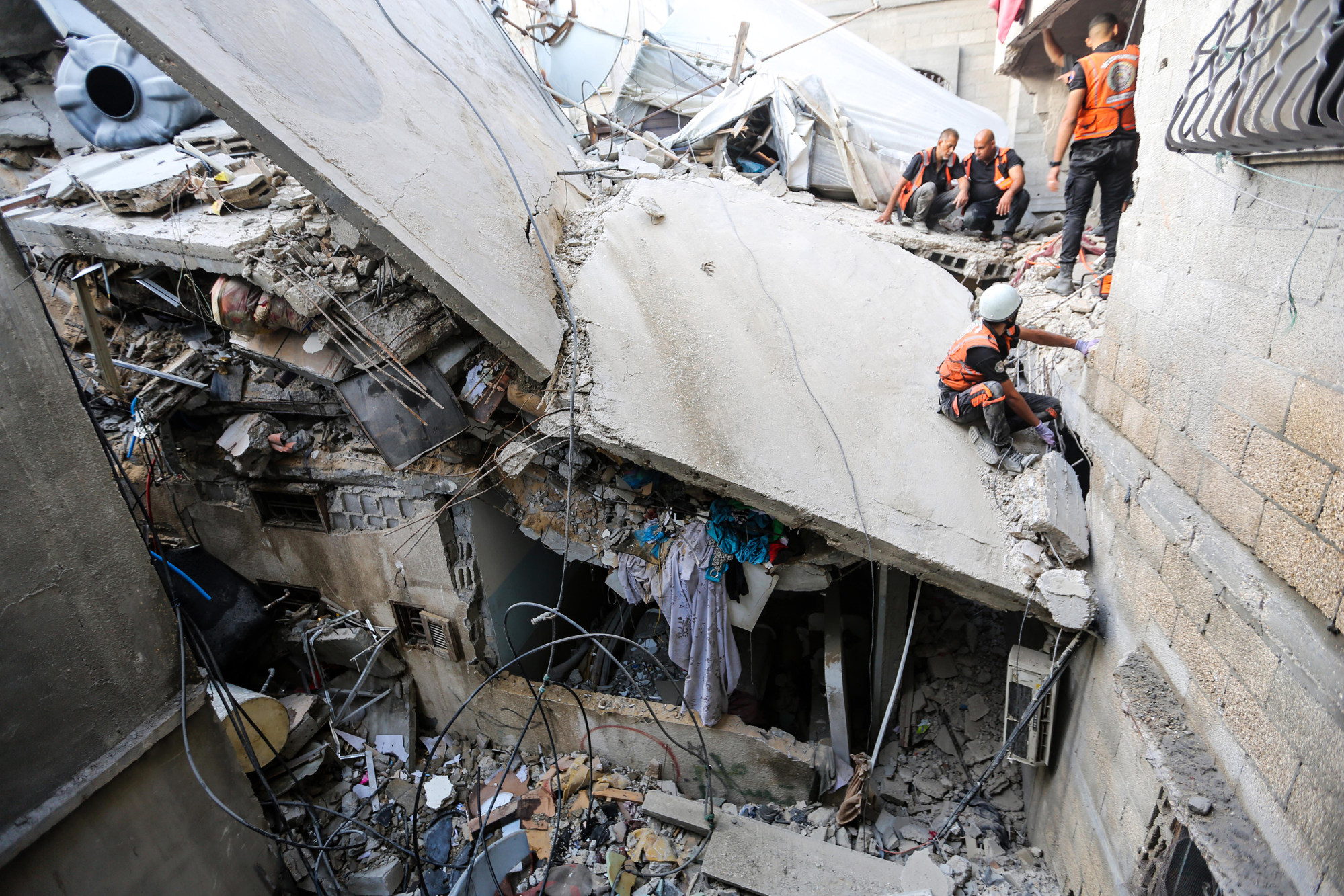
Israel’s borders are safe, but Gaza war puts its future security in peril
- A look at search trends suggests the narrative focus is no longer on Israel or Hamas but on Gaza and the rapidly developing humanitarian crisis
- The enduring narrative of the Gazan people’s suffering suggests a potential long-term threat to Israel’s security as memories of the last month will die hard
One of the world’s largest industries in terms of litres of printer’s ink is forecasting the future. We all want to know what risks are coming so we can prepare against the bad stuff and look forward to the good. Forecasting is difficult, and prediction is impossible.
In reality, history often doesn’t repeat itself but more commonly rhymes. We often see déjà vu happening all over again and take that as a guide that we will see a similar outcome as before, hoping that this time it is not too different.
History is an uncertain guide because the exact circumstances are unrepeatable. Dominant narratives flow and bifurcate like a river; they can be strong and dominant upstream but turn out to be fake, off-target or misleading as time goes on.
Alternative narratives might dominate at different times and at different strengths to inject new facts, activate dormant narratives or insert noise into our expectations. As a narrative develops, uncertainties become risks to which we can apply probabilities with increasing certainty. When we reach a point of certainty, a new dominant narrative emerges.
Hong Kong is a city of duelling narratives, but deep down we know the truth
We can discern the wisdom of the crowd by running keywords through Google Trends, a website that analyses the popularity of top search queries over time. The popularity of each keyword provides some indication of the current narratives and what the crowd is thinking.
The frequency of Google searches for the word “Israel” from October 6 looks like a sine curve skewed to the left. Searches soared and reached a peak on October 9, then declined. The word “Hamas” also surges over the same timescale but tails off less sharply. The initial frequency of “Gaza” trails that of Hamas, with fewer initial searches.
However, by October 14, searches for Israel had fallen by almost half from their peak while Gaza began to have more searches than Hamas. Gaza fell by about 15 per cent, but Hamas dropped by more than 50 per cent.

The same keyword searching technique can be used with the words “Hezbollah,” “West Bank” and “Iran”. Those search terms surge after October 6 and again continue to move in rough synchronicity with the ongoing events, but the search frequency is much lower compared to the previous set of terms.
The Israeli leadership will take this as good news, but less welcoming is the narrative switch in global sympathy from Israel to Gaza resulting from the Israeli military’s bombing of civilians. This is an unfortunate reprise of the recent dominant narrative around Russia and Ukraine, whose own keyword searches are overwhelmed by those for Israel and Gaza.
The enduring narrative of the suffering of ordinary people in Gaza also suggests a potential long-term threat to Israel’s security as memories of the last month will die hard. Israeli leaders would be wise to remember the adage that “revenge is a dish best served cold”.
Dr Richard Harris is chief executive of Port Shelter Investment and is a veteran investment manager, writer and broadcaster, and financial expert witness

